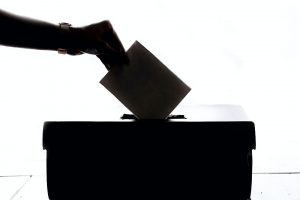Choosing a president

SINGAPOREAN voters will cast their ballots on Sept. 1 to choose their president, the fifth time they will directly make their choice. Before 1993, Parliament appointed the president. Given the dominance of the People’s Action Party (PAP) that Lee Kuan Yew founded, which has not lost a general election since Singapore gained independence in 1965, it was clear that the president served mainly a ceremonial role and did not need to intervene in governance matters.
Ceremonial did not mean unimportant. With its multiethnic population, Singapore needed a person in the presidential palace who would be perceived as transcending partisan politics and could play a unifying role. The Constitution imposed stringent qualifications for the presidency. Popular appeal was advantageous, but not adequate. The candidates’ record must command the respect and, hopefully, the admiration of the national community for unquestionable integrity and competence, this latter demonstrated, not by testimonials but by quantitative measures.
For the 2023 elections, the Presidential Elections Committee (PEC) declared the eligibility of three candidates. Tharman Shanmugaratnam received a pass. Previous government service at ministerial level (Education and Finance) and as deputy prime minister made it unnecessary to subject him to scrutiny. The PEC approved the candidacy of Ng Kok Song, former chief investment officer at sovereign wealth fund GIC, and Tan Kin Lian, former chief executive of National Trade Union Congress Income Insurance.
Entrepreneur George Goh, a fourth aspirant, failed to clear the eligibility bar. The PEC noted a key requirement for presidential candidates from the private sector; they must show that in the previous three years they had managed profitably as CEO a company with shareholders’ equity of at least $500 million. Goh had documented his top management positions in five companies whose combined shareholders’ equity amounted to S$1.52 billion (P64 billion). None of the five companies met the required $500 million in shareholders’ equity. The PEC ruled that combining the resources of five companies was not acceptable.
Despite his control over the PAP and the party’s control of government, Lee Kuan Yew worried that elections might someday bring to power incompetent bureaucrats who might appoint officials unqualified for the posts or corrupt opportunists who would place personal over national interests and raid the Treasury to enrich themselves. Changes in the Constitution in 1991 expanded the president’s role so that the office could serve to check corruption or incompetence in government.
The amendments empowered the presidency to serve as the last line of defense to block attempts by the government to draw from the reserves what it had not accumulated, or to appoint unsuitable officials to critical civil service positions.
For the president to fulfill this function, the government decided to make the post elective. Direct election of presidents would make them accountable to the people whose votes would give them the legitimacy and the right to exercise state power in their name.
Direct elections also raised potential problems. First, the Chinese community accounted for about 70% of the population; it would be difficult for the Malay or Indian candidate to win in a head-to-head competition with a Chinese contender. A presidency permanently occupied by a Chinese incumbent would defeat the objective of projecting the president as a unifying symbol for the multi-ethnic community. Another constitutional change in 2017 addressed this problem by providing that the presidency would be reserved to an ethnic group excluded from the presidency for five continuous terms (or 30 years). Thus, in 2016, Halimah Yacob was elected from the Malay community and was also the first woman to serve as president.
The second problem was more politically complicated and immediately surfaced during the term of the first elected president, Ong Teng Cheong (1993-1999). After his education at the University of Adelaide in Australia (BS Engineering Honors) and at MIT in the US (MS Industrial Management), Ong distinguished himself in the private sector, serving as chairman and managing Director of Neptune Orient Lines. He became a leading figure in the PAP, serving in Parliament for more than 20 years and receiving ministerial appointments in Communications and Labor, as well as deputy prime minister. He also served as NTUC Secretary-General from 1983 to 1993.
Ong took his constitutional duty and powers as president to raise hard questions about the budgeting process and the allocation of surpluses. He was particularly concerned about the state of the country’s financial reserves and the conditions for drawdowns, stressing the need for greater transparency and accountability in their access and use. He also asked for more information and influence over appointments to such key institutions as the Corrupt Practices Investigation Bureau, Attorney-General’s Chambers and Central Provident Fund Board.
Edilberto C. De Jesus is a former president of the Asian Institute of Management. He served as Education secretary under then President Gloria Macapagal Arroyo from 2002 to 2004.




